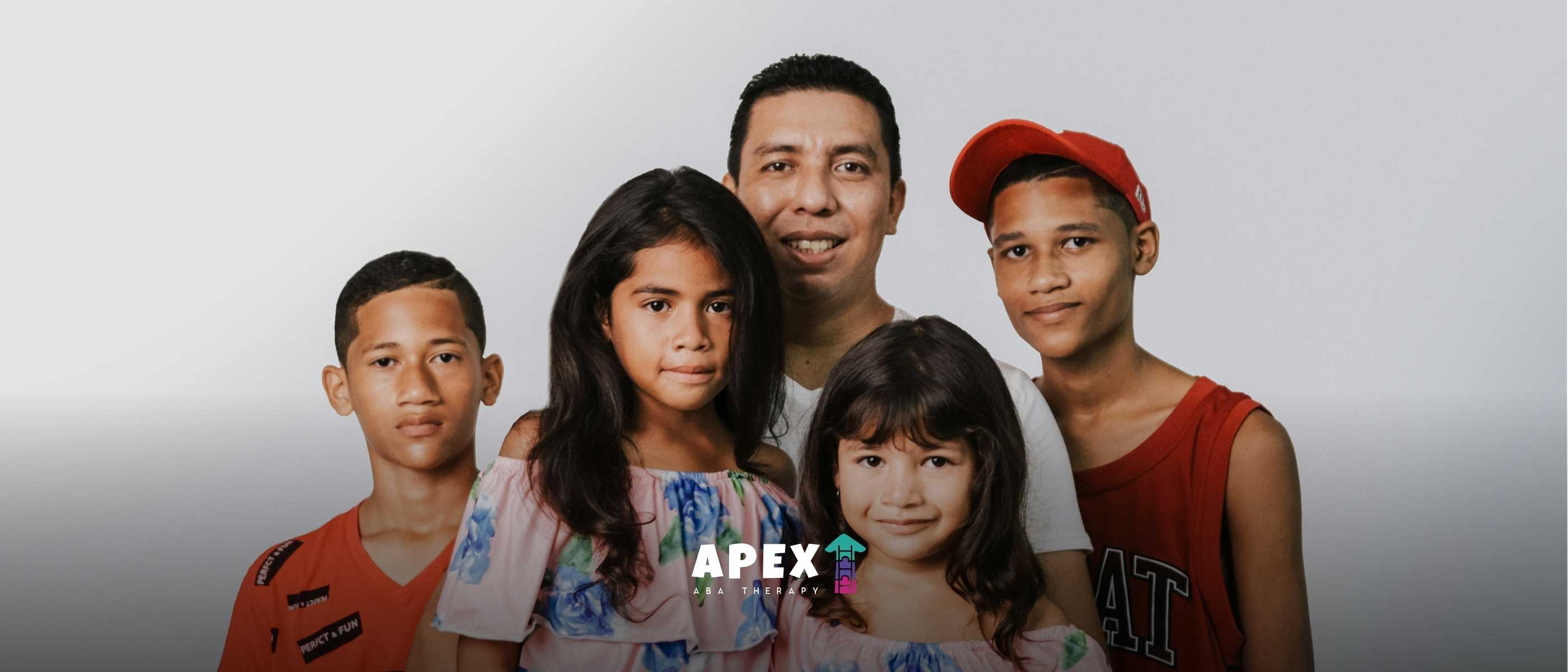Famous Politicians With Autism
Despite the challenges that come with autism, many individuals with this condition have gone on to achieve great things. In this article, we will explore some famous politicians with autism who have made a significant impact on the world.
.jpg)
Famous Politicians With Autism
Who are the Politicians with Autism?
Autism is a complex neurological condition that affects millions of people around the world. It is a developmental disorder that affects social interaction, communication, and behavior. Despite the challenges that come with autism, many individuals with this condition have gone on to achieve great things. In this article, we will explore some famous politicians with autism who have made a significant impact on the world.

Tim Fischer
Tim Fischer, the Deputy Prime Minister of Australia from 1996 to 1999, was diagnosed with Asperger's syndrome later in life. He is known for his dedication to public service and his advocacy for rural communities. As a politician, he worked tirelessly to promote the interests of farmers and rural Australians.
Despite facing challenges related to his condition, he was able to make significant contributions to Australian politics and society. After leaving politics, he continued to be an advocate for people with disabilities and mental health issues. His legacy serves as an inspiration to individuals with autism who aspire to make a difference in their communities and beyond.

Vernon Smith
Vernon Smith is an economist who was awarded the Nobel Memorial Prize in Economic Sciences in 2002. He was diagnosed with Asperger's syndrome as an adult and has spoken publicly about his experiences with the condition. Despite the challenges he faced growing up, Smith was able to achieve great success in his career and has made significant contributions to the field of economics.
Vladmir Putin
A 2008 report from a Pentagon think-tank theorized that Russian President Vladimir Putin had Asperger's syndrome. While this has not been confirmed, many experts have noted his behavior and communication style as being consistent with the disorder. Despite these challenges, Putin has been a prominent figure in global politics for many years.
He served as President of Russia from 2000 to 2008 and then again from 2012 to present. His leadership style has been described as authoritarian, but he has also made significant efforts to modernize Russia's economy and infrastructure. Whether or not he is on the autism spectrum, Putin's impact on world affairs cannot be denied.
Rep. Briscoe Cain
In 2021, Texas Representative Briscoe Cain publicly revealed that he has Asperger's Syndrome. Cain, a Republican from Deer Park, has served in the Texas House of Representatives since 2017 and is known for his conservative views on issues such as gun rights and abortion.
Despite facing challenges related to his condition, Cain has been able to effectively represent his constituents and advance his policy goals. His disclosure of his diagnosis serves as an important reminder that individuals with autism can succeed in any field, including politics. It also highlights the need for greater awareness and understanding of neurodiversity in society.
Jessica Benham
Jessica Benham made history in 2020 when she became the first openly autistic person elected to the Pennsylvania state legislature. She has been a longtime advocate for disability rights and mental health awareness, working with organizations such as the Pittsburgh Center for Autistic Advocacy.
As a politician, Benham is committed to fighting for policies that support marginalized communities, including individuals with disabilities. Her platform includes increasing funding for special education programs, expanding access to healthcare, and promoting affordable housing initiatives.
Benham's election serves as an important milestone in the representation of individuals with autism in politics and sends a powerful message about the importance of neurodiversity in government.
Yuh-Line Niou
Yuh-Line Niou is a New York State Assembly member who was diagnosed with autism in her early 20s. She represents the lower Manhattan district and has been a strong advocate for issues such as affordable housing, mental health services, and workers' rights.
Despite facing challenges related to her condition, Niou has been able to effectively represent her constituents and make significant contributions to New York politics.
Her advocacy work includes co-sponsoring a bill that would provide free legal representation to immigrants at risk of deportation and pushing for increased funding for mental health services in schools. Niou's story serves as an important reminder of the diverse experiences and talents that individuals on the autism spectrum can bring to politics.
The Changing Perception of Autism
The public perception of autism has undergone significant changes over the past few decades. In the past, individuals with autism were often seen as being intellectually disabled or emotionally disturbed. They were frequently institutionalized and excluded from mainstream society. This negative perception was perpetuated by media portrayals that emphasized the challenges and limitations associated with autism.
However, in recent years, there has been a growing understanding of autism as a spectrum disorder with a wide range of abilities and challenges.
There have been increasing efforts to promote acceptance and inclusion of individuals with autism in all areas of life, including education, employment, and politics. This shift in perception has been driven by advocacy organizations, scientific research, and personal stories shared by individuals on the autism spectrum.
Despite these positive changes, there is still much work to be done to fully integrate individuals with autism into society. Many people on the spectrum still face discrimination and barriers to accessing necessary supports and services. It is important for society to continue working towards greater awareness and understanding of neurodiversity in order to create a more inclusive world for everyone.
Politicians with Family Members on the Autism Spectrum
Autism not only affects individuals diagnosed with the condition but also their families. Many politicians have family members on the autism spectrum, and this has influenced their work in various ways.
Rob Portman
Rob Portman is a former U.S. Senator from Ohio and a member of the Republican Party. He has a son who was diagnosed with autism at a young age. In his role as a senator, Portman advocated for policies to support individuals with disabilities, including increased funding for special education programs and promoting employment opportunities for people with disabilities.
Chris Packham
Chris Packham is an English naturalist, nature photographer, television presenter, and author. His sister was diagnosed with Asperger's syndrome at the age of 40. Packham has been vocal about the challenges faced by individuals on the autism spectrum and has used his platform to raise awareness about neurodiversity. He has also highlighted the unique strengths that come with being autistic, such as heightened sensory perception and attention to detail.
Scott Badesch
Scott Badesch is the former President and CEO of the Autism Society of America. He has two sons on the autism spectrum. Badesch's experience as a parent of children with autism influenced his work advocating for policies that support individuals with disabilities and promoting autism awareness.
These are just a few examples of politicians who have family members on the autism spectrum. Their experiences have shaped their perspectives on disability rights and advocacy in important ways. It highlights how personal experiences can shape one's political views and priorities when it comes to issues like healthcare, education, and social services.
The Role of Advocacy Groups in Promoting Awareness and Acceptance of Autism in Politics
Advocacy groups have played a crucial role in promoting awareness and acceptance of autism in politics. These organizations work tirelessly to educate the public about the realities of autism and to advocate for policies that support individuals on the spectrum. They also provide resources and support to individuals with autism who are interested in pursuing careers in politics.
One such organization is the Autism Society of America, which has been a leading voice in promoting autism awareness since its founding in 1965. The organization works to promote policies that support individuals with autism and their families, including access to healthcare, education, and employment opportunities. They also work to combat stigma and discrimination against individuals with autism through public education campaigns and advocacy efforts.
Another important advocacy group is the Autistic Self Advocacy Network (ASAN), which is run by individuals on the autism spectrum. ASAN promotes self-advocacy, leadership development, and community building among individuals with autism. The organization also works to promote policies that support people with disabilities, including access to healthcare, education, and employment opportunities.
Through their advocacy efforts, these organizations have helped to change perceptions of autism and increase understanding of neurodiversity. They have also helped to create pathways for individuals on the spectrum to pursue careers in politics and other fields where they can make meaningful contributions.
As society continues to become more aware of neurodiversity, it is important for advocacy groups to continue their important work promoting acceptance, inclusion, and understanding of all individuals regardless of their neurological differences.
Strategies for Making Political Campaigns More Accessible to Individuals with Autism
Political campaigns can be overwhelming and stressful for anyone, but they can be particularly challenging for individuals with autism. Sensory overload, social anxiety, and difficulty processing information can make it difficult for people on the spectrum to fully engage in the political process.
Fortunately, there are strategies that political campaigns can use to make their events and messaging more accessible to individuals with autism. Here are a few examples:
Sensory-Friendly Events
One of the biggest challenges for individuals with autism is sensory overload. Loud noises, bright lights, and crowded spaces can be overwhelming and trigger anxiety or meltdowns. To make events more accessible, political campaigns can consider hosting sensory-friendly events that are designed to minimize sensory input. This might include dimming lights, reducing noise levels, providing quiet spaces for breaks, and limiting attendance.
Clear Communication
Individuals with autism may struggle with processing complex language or understanding metaphors or sarcasm. Political campaigns should aim to communicate their message in clear and concise language that is easy to understand. Avoiding jargon or overly complex concepts will help ensure that everyone can participate in the conversation.
Visual Aids
Many individuals with autism benefit from visual aids such as pictures or diagrams. Political campaigns can use infographics or other visual aids to help convey their message in a way that is easy to understand.
Inclusive Language
Using inclusive language is important when communicating with individuals on the autism spectrum (and any marginalized group). Avoid using ableist language such as "crazy" or "insane," which perpetuate harmful stereotypes about mental health conditions. Instead, focus on using neutral language that does not stigmatize neurodiverse individuals.
By implementing these strategies (and others), political campaigns can create a more inclusive environment that welcomes people of all abilities into the political process.
Frequently Asked Questions (FAQs)
Can individuals with autism run for political office?
Yes, individuals with autism can run for political office. While there may be challenges associated with campaigning and serving in public office, there are many examples of successful politicians on the autism spectrum.
How can I support a political candidate with autism?
There are several ways to support a political candidate with autism. You can volunteer for their campaign, donate money or resources, or simply spread the word about their candidacy through social media or word of mouth.
What policies do politicians on the autism spectrum tend to support?
Politicians on the autism spectrum have diverse views and priorities, just like any other politician. However, many are passionate advocates for disability rights and mental health awareness. They may also prioritize issues such as education, healthcare, and employment opportunities for individuals with disabilities.
How can I make my own political campaign more accessible to individuals with autism?
To make your campaign more accessible to individuals with autism, consider hosting sensory-friendly events, using clear communication strategies such as visual aids and inclusive language, and providing accommodations such as quiet spaces or interpreters. It is also important to listen to feedback from neurodiverse individuals and incorporate their perspectives into your campaign messaging and policies.
Conclusion
These are just a few examples of famous politicians with autism who have made a significant impact on the world. Despite the challenges that come with autism, these individuals have been able to channel their interests and talents into successful careers and have made important contributions to their respective fields. By highlighting their achievements, we can raise awareness about autism and help to break down the stereotypes and stigmas that surround this condition.
Sources
- Tim Fischer: https://www.quora.com/Are-there-any-famous-politicians-with-autism-spectrum-disorders
- Vladmir Putin: https://www.quora.com/Are-there-any-famous-politicians-with-autism-spectrum-disorders
- Vernon Smith: https://www.nobelprize.org/prizes/economic-sciences/2002/smith/lecture/
- Rep. Briscoe Cain: https://www.dallasnews.com/news/politics/2019/04/25/texas-lawmaker-reveals-he-has-asperger
- Yuh-Line Niou: https://thefulcrum.us/big-picture/Leadership/women-in-government-2657847794
- Jessica Benham: https://www.today.com/health/pa-state-rep-jessica-benham-one-1st-politicians-autism-t205917
Frequently Asked Questions
.jpg)
Autism And Bed Wetting: Unlocking Solutions
Explore the connection between autism and bedwetting and find practical insights and solutions for parents and caregivers. Discover how understanding and support can make a difference in managing this common challenge for children and individuals on the autism spectrum.

Proven Examples of Smart Goals for Students with Autism
Unlock the potential of students with autism through proven examples of SMART goals. Set them up for success!
.jpg)
What is the Sensory Processing Disorder ICD-10 Code?
If you or someone you know has been diagnosed with Sensory Processing Disorder (SPD), you may have heard of the ICD-10 code. In this article, we'll explain what the SPD ICD-10 code is, what it means, and why it's important.

Understanding Vestibular Stimming in Autism
Demystifying vestibular stimming in autism: Understand the impact, strategies, and support for individuals. Uncover the power of self-regulation through stimming.

Do Amish Kids Get Autism?
Explore the prevalence of autism in Amish children and uncover the factors that may contribute to this phenomenon. Delve into the unique characteristics of Amish communities and their impact on autism rates.

Breaking Barriers: Free Sensory Toys for Autism That Make a Difference
Discover life-changing free sensory toys for autism! Unlock the power of sensory play for children with autism.

Famous People Thriving with Autism or Aspergers Syndrome
Discover the extraordinary journeys of famous people thriving with autism and Asperger's syndrome. Unveil the inspiring stories of icons who break stereotypes.

IEP Goals for Autism: Ultimate Guide
Unlock the potential: Constructing meaningful IEP goals for autism to support your child's growth and development. Discover strategies and examples!

Young Celebrities with Autism
Discover inspiring young celebrities with autism and their journeys in entertainment and advocacy.
.jpg)
Autism Hand Posturing: Causes, Types, and Management
Autism hand posturing refers to repetitive and often purposeless movements or postures of the hands and fingers seen in individuals with autism. These movements range from simple hand flapping to more complex finger twisting and tapping.

Distinguishing ADHD vs Autism Stimming
ADHD stimming vs autism stimming: Discover the motivations and characteristics behind these behaviors in individuals.

Addressing Rigid Thinking in Autism
Unlocking flexibility in autism! Discover strategies, therapy, and tools to address rigid thinking for a brighter future.

DSM 6 Release Date Revealed
Unlock the future with DSM-6! Discover the release date and anticipated changes in the mental health landscape.

Why Do Autistic People Rock?
Uncover insights with empathy, exploring the diverse ways rocking serves as a coping mechanism and sensory regulation for individuals on the autism spectrum. Join us in celebrating the beauty of neurodiversity, fostering understanding and appreciation for this distinctive aspect of autistic experience.

Signs Your Toddler Is Not Autistic
Discover reassuring signs that your toddler may not be autistic in this human-centered guide. Explore the joy of your child's unique developmental journey, celebrating their social engagement and communication skills.
.jpg)
Facial Features & Physical Characteristics Of Autism
Some researchers believe that these physical characteristics are related to the underlying neurological differences in individuals with autism.

The Three Main Causes of Autism: Exploring Genetics, Environment, and Brain Differences
Autism is influenced by genetics, environmental factors, and brain differences. Learn how these three causes contribute to the development of the condition.

What are the Common Behaviors of Autism?
Autism behaviors can vary widely. Learn about the most common traits, from social difficulties to sensory sensitivities, and how ABA therapy can support progress.

What Age is Too Late for ABA Therapy?
It’s never too late to start ABA therapy. Discover how children, teens, and adults can still make meaningful progress with personalized ABA support.

Is In-Home ABA the Right Fit for Your Child? Here’s What You Need to Know
In-home ABA therapy offers a tailored approach to support your child’s development. Learn how it can improve key skills like communication, social interaction, and more.

How Families Can Make ABA Therapy a Positive and Successful Experience
Learn how families can ensure ABA therapy is a positive, successful experience. Discover tips for involvement, consistency, and support to make ABA effective.

Can a Child Have Autism and Still Talk Normally?
Can a Child Have Autism and Still Talk Normally?

What Are the Red Flags for Autism in a 2-Year-Old?
Autism Red Flags in 2-Year-Old Children | Apex ABA

Is Autism a Lifelong Condition?
Is Autism a Lifelong Condition? Understanding The Journey

Best Age to Start ABA Therapy & What Parents Should Know
Best Age to Begin ABA Therapy for Children | Apex ABA

What’s the Difference Between High-Functioning Autism and Asperger’s?
Difference Between High-Functioning Autism and Asperger’s

ABA Therapy Enhancing Social Skills: A Key to Improved Communication and Interaction for Children with Autism
How ABA Therapy Helps Children Build Social Skills

Misconceptions About ABA Therapy: Clearing Up the Myths
Common Misconceptions About ABA Therapy | Apex ABA

What Does It Mean to Be “On the Spectrum”?
What Does It Mean to Be on the Autism Spectrum? | Apex ABA

Understanding the Power of Functional Behavior Assessment ABA
Effective ABA Techniques for Behavioral Intervention

Discover How ABA Helps ADHD in Your Child’s Life
How ABA Therapy Helps Children with ADHD | Apex ABA

Life-Changing ABA Therapy Case Studies You Need to Know
Real Success Stories from ABA Therapy Journeys | Apex ABA

Can Children “Outgrow” Autism?
Can Children Outgrow Autism? Understanding the Facts

Is Autism a Mental Illness or a Developmental Disorder?
Mental Illness or Developmental Disorder Explained

Is Autism More Common in Boys Than Girls?
Autism in Boys vs Girls: What the Research Reveals

What is the Difference Between Autism and Sensory Processing Disorder?
Autism vs Sensory Processing Disorder Differences | Apex ABA

What's the Difference Between Autism and Speech Delay?
Autism vs Speech Delay & Key Differences Explained | Apex

ABA Therapy in North Carolina: A Complete Guide for Families
Learn everything about ABA therapy in North Carolina, including services, costs, insurance coverage, and how to choose the best ABA provider in North Carolina.

ABA Therapy vs Preschool: Making the Right Choice Explained
Learn the key differences between ABA therapy and preschool to help you choose the best option for supporting your child’s early learning and development.

Which Personality Type Is Most Likely to Be Autistic?
Which Personality Type Is Most Likely to Be Autistic? | Apex ABA

Why Consistency Matters: What Happens If ABA Therapy Ends Prematurely
What Happens If ABA Therapy Is Stopped Too Early? | Apex ABA

How Can You Gain an Autistic Person’s Attention? Tips for Meaningful Connection
How Can You Gain an Autistic Person’s Attention?

Sensory Sensitivity and Sixth Sense: What Autism Research Shows
Do Autistic People Have Sixth Sense? | Apex ABA

What Happens If Autism Is Left Untreated?
Can Autism Get Worse If Untreated? | Apex ABA

What Not To Do With An Autistic Child: Avoid These 10 Mistakes
What Not To Do With An Autistic Child? | Apex ABA

Coping with Regressive Autism: Tips for Parents
What is Regressive Autism? | Apex ABA

Do Autistic Kids Live with Parents Forever? Here’s the Reality
Do autistic kids live with parents forever? Discover the facts about independence and living arrangements in autism with expert-backed insights.

Red Flags in ABA Therapy: What Parents Must Watch For
What are the red flags in ABA therapy? Learn to identify warning signs for safe, effective autism treatment in this blog.

Can You Go from Level 3 Autism to Level 1? Is It Possible?
Can you go from level 3 autism to level 1? Learn about progress, therapy, and support options with expert help from Apex ABA.

Autism vs Introversion: How to Tell the Difference
Is it autism or just introversion? Learn the key differences and signs with expert insights from Apex ABA.

ABA for Managing Transitions: Tips to Ease Change for Kids
Learn how ABA for managing transitions helps children with autism handle change smoothly.

Understanding the 7 Dimensions of ABA for Better Outcomes
Discover the 7 Dimensions of ABA and how they can lead to better outcomes.

5 Unique Autistic Love Languages You Should Know About
Discover the 5 unique autistic love languages that can enhance your relationships.

Transforming Futures: Improving Lives of Kids with Autism
Discover how innovative strategies are focused on improving lives of kids with autism.

ABA Therapy Techniques for Addressing Repetitive Behaviors in Autism
Harnessing ABA Strategies to Tackle Repetitive Behaviors in Autism

The Role of ABA Therapy in Enhancing Communication Skills
Transforming Communication for Children with Autism Through ABA Therapy

How ABA Therapy Supports Effective Communication in Nonverbal Children
Unlocking Speech Through ABA: Transformative Paths for Nonverbal Children

How to Help Your Child Transfer Skills Learned in ABA Therapy to Real Life
Unlocking Real-World Success for Children in ABA Therapy

How ABA Therapy Helps Children Develop Better Organizational Skills
Empowering Children with ABA Therapy for Enhanced Organizational Skills

The Importance of Creating a Structured Routine in ABA Therapy
How Structured Routines Transform ABA Therapy for Autism

The Role of ABA Therapy in Developing Conflict Resolution Skills
How ABA Therapy Transforms Conflict Resolution Competence

The Importance of Generalization in ABA Therapy for Autism
Unraveling the Role of Generalization in Enhancing ABA Therapy Outcomes

Why ABA Therapy is Crucial for Parents of Children with Autism
The Transformative Impact of ABA Therapy on Families with Autistic Children

How to Involve Parents in the ABA Therapy Process
Maximize Parent Engagement in ABA Therapy for Better Outcomes

What are the Core Principles of ABA Therapy?
Exploring the Cornerstones of Applied Behavior Analysis

Why Communication is Key in ABA Therapy for Autism
The Crucial Role of Communication in ABA Therapy for Autism

Why ABA Therapy Works for Children with Autism Regardless of Severity
Effective ABA Interventions for All Levels of Autism

Why It’s Important to Maintain a Balanced Approach to ABA Therapy
Balancing Effectiveness and Ethics in ABA Therapy

The Role of ABA Therapy in Developing Adaptive Behavior Skills
Exploring How ABA Therapy Transforms Lives

The Benefits of Combining ABA Therapy with Speech Therapy
Maximizing Development with Integrated Therapy Approaches

What to Expect During an ABA Therapy Session
Demystifying ABA Therapy Sessions: A Comprehensive Overview

How ABA Therapy Enhances Cognitive Functioning in Children with Autism
Exploring the Influence of Applied Behavior Analysis on Autism Cognition

How ABA Therapy Helps Children with Autism with Transitions Between Activities
Easing Transitions for Children with Autism: The Role of ABA Therapy

How to Foster Cooperation Between Parents and Therapists in ABA Therapy
Building Effective Partnerships in ABA Therapy

The Role of Positive Reinforcement in ABA Therapy
Exploring the Impact of Positive Reinforcement in Modern ABA Therapy

Why ABA Therapy is Effective for Children of All Ages
Understanding the Reach and Impact of ABA Therapy Across Age Groups

How to Support Your Child’s Emotional Growth with ABA Therapy
Harnessing ABA Therapy for Enhancing Emotional Development in Children with Autism

The Role of ABA Therapy in Enhancing Peer Relationships for Children with Autism
Harnessing ABA Therapy to Boost Social Connections Among Autistic Children

How to Overcome Common Challenges in ABA Therapy
Navigating Hurdles in ABA Therapy: Strategies and Solutions

How to Manage Behavioral Expectations with ABA Therapy
Understanding Applied Behavior Analysis in Behavioral Management

How ABA Therapy Promotes Emotional Regulation in Children with Autism
Unlocking Emotional Balance: ABA Therapy's Role in Autism

How ABA Therapy Improves Social Skills in Children with Autism
Harnessing ABA Therapy to Enhance Social Competency in Autistic Children

The Role of ABA Therapy in Classroom Success for Children with Autism
Harnessing ABA for Academic and Social Growth in Autism

The Importance of Evaluating and Revising ABA Therapy Goals Regularly
Regular Evaluations: The Cornerstone of ABA Therapy Success

How to Choose the Right ABA Therapy Program for Your Child
Finding the Perfect ABA Therapy Fit for Your Child

The Role of Behavior Analysts in Implementing ABA Therapy
Understanding the Vital Contributions of Behavior Analysts in ABA Therapy

The Role of RBTs (Registered Behavior Technicians) in ABA Therapy
A Closer Look at the Essential Work of RBTs in ABA Therapy

What Makes ABA Therapy Effective for Different Learning Styles?
Unraveling the Flexibility and Effectiveness of ABA Therapy

Understanding the Importance of Data Collection in ABA Therapy
The Role of Data in Shaping Effective ABA Therapy

How ABA Therapy Helps with Toilet Training in Children with Autism
Unlocking Independence: ABA's Role in Autism Toilet Training

The Importance of Encouraging Natural Play in ABA Therapy
Revolutionizing ABA Therapy with Natural Play

How to Make the Most of ABA Therapy at Home
Enhancing ABA Therapy Practices Within Your Home

How to Make ABA Therapy Fun and Engaging for Children with Autism
Transforming ABA Therapy into a Fun Learning Journey

The Role of ABA Therapy in Addressing Verbal and Nonverbal Communication in Autism
Enhancing Communication Skills in Autism Through ABA Therapy

Understanding the Role of Family in ABA Therapy for Autism
The Crucial Impact of Family Engagement in Autism Therapy

How to Handle Setbacks and Challenges in ABA Therapy
Navigating Difficulties and Setbacks in ABA Therapy for Children

How ABA Therapy Can Help Children Build Stronger Relationships with Peers
Unpacking the Influence of ABA Therapy on Peer Relationships in Children

Understanding the Concept of Shaping in ABA Therapy
Demystifying Shaping Techniques in Applied Behavior Analysis

How ABA Therapy Enhances Independent Living Skills in Autism
Unlocking Independence: The Role of ABA Therapy in Autism
.jpg)
90+ Reading Statistics, Facts and Demographics
In this article, we will dive into 60 reading statistics that shed light on the importance of reading and its impact on different aspects of life.



